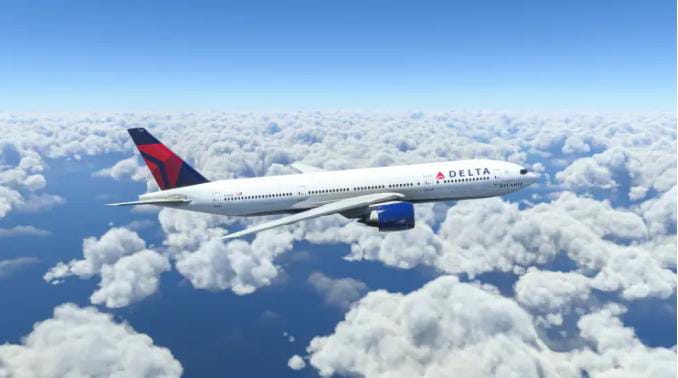Delta Air Lines to end Midland International Airport operations in November

(DDM) – Delta Air Lines has announced that it will permanently halt operations at Midland International Airport in Texas beginning November 8th.
Diaspora Digital Media (DDM) gathered that the airline’s decision is tied to operational realignment aimed at improving network efficiency and responding to shifts in passenger demand.
Despite reporting strong second-quarter earnings, Delta said maintaining the Midland service had become unsustainable.
The airline cited rising operational costs and weaker regional traffic as major factors influencing the pullout.
Chief Executive Officer Edward Bastian explained that the decision was not taken lightly, but was necessary to protect Delta’s long-term network strategy.
According to Bastian, the company must focus resources on routes that deliver consistent profitability and support its competitive position.
Industry analysts have linked Delta’s withdrawal from Midland to broader challenges affecting U.S. aviation.
These include a nationwide pilot shortage, rising fuel costs, and intensifying competition from low-cost carriers.
The decision highlights the growing trend of major airlines consolidating flights to larger hub airports while reducing service to smaller regional markets.
For Midland, the exit raises concerns over reduced connectivity and its potential economic impact.
Airport officials have acknowledged that the loss of Delta flights could inconvenience business travelers and residents.
They also worry about the long-term implications for attracting investment and sustaining passenger growth at the regional airport.
However, both United Airlines and American Airlines are expected to step in to provide alternative services for affected travelers.
Analysts say the ability of these carriers to absorb Delta’s market share will be critical in mitigating disruptions.
Delta, on its part, has made clear that its focus will now shift to strengthening profitable hub routes across its U.S. network.
The airline has been actively consolidating operations at key airports such as Atlanta, Minneapolis, and Salt Lake City.
By concentrating on high-demand corridors, Delta hopes to maintain strong financial performance despite ongoing industry headwinds.
Observers note that the airline’s decision reflects a broader reality of regional aviation economics in the United States.
Smaller cities often struggle to sustain competitive air service as carriers prioritize efficiency and yield management.
For passengers in Midland, the withdrawal may result in fewer choices, longer layovers, and potentially higher ticket prices.
Local officials have pledged to engage with other airlines in a bid to restore service diversity.
The long-term future of Midland International Airport may depend on its ability to adapt to changing airline strategies.
Travel experts believe that while the short-term disruption is significant, the market may eventually stabilize through competitive adjustments.
The post Delta Air Lines to end Midland International Airport operations in November appeared first on Diaspora Digital Media DDM.





